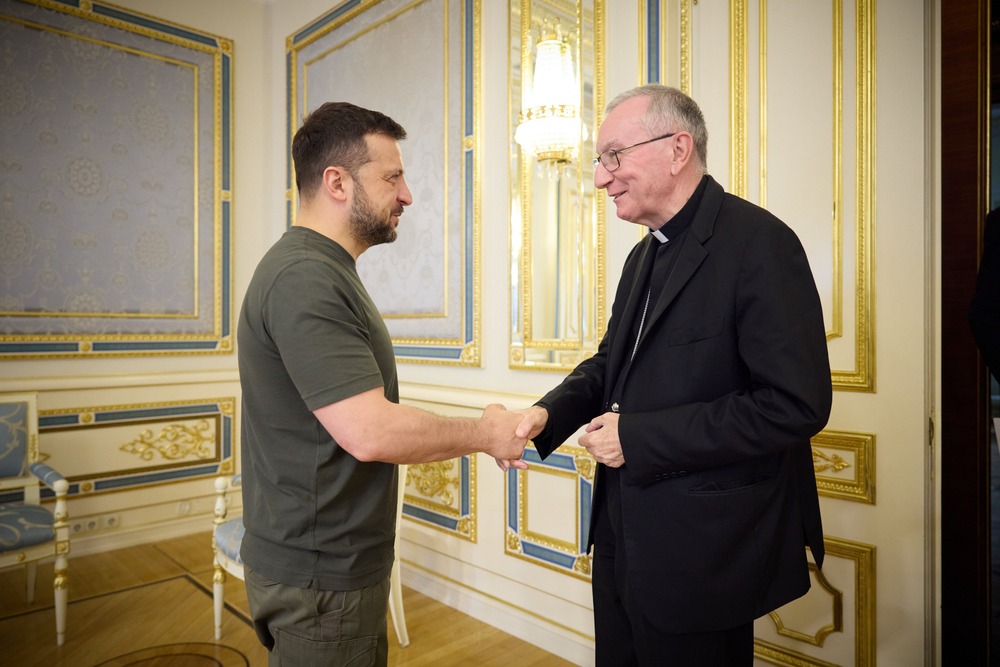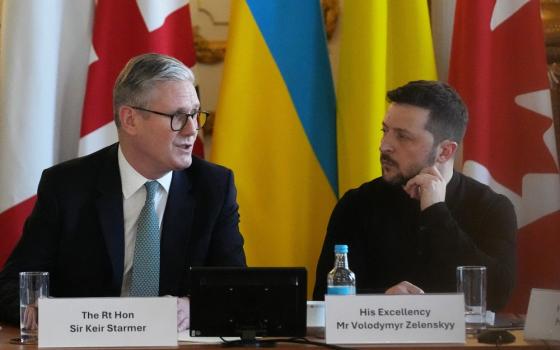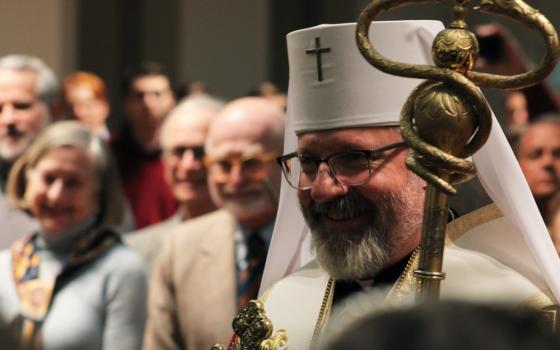
Cardinal Pietro Parolin, Vatican secretary of state, meets Volodymyr Zelenskyy, president of Ukraine, during his visit to Ukraine July 23, 2024. (CNS/Volodymyr Zelenskyy via X)
As the 1,000th day since Russia launched its large-scale invasion of Ukraine approached, the Vatican secretary of state said he hoped the milestone would "awaken a sense of responsibility in everyone, especially those who can stop the ongoing carnage."
An interview with Cardinal Pietro Parolin, the secretary of state, was published by the Vatican's media outlets Nov. 18, the eve of the 1,000th day since what he called "the outbreak of military aggression against Ukraine."
While "the signals are not positive," he said "a negotiation is always possible and desirable for anyone who rightly values the sacredness of human life."
"Negotiating is not a sign of weakness but of courage," the cardinal insisted.
"Negotiating a just peace takes time," Parolin said, but calling a cease-fire or truce to prepare talks and stop the killing "could happen in just a few hours, if only the will existed."
The first move, he said, probably would need to be made "by Russia, which initiated the conflict and should cease its aggression."
"As the Holy Father often says, we need people willing to bet on peace, not on war, individuals who realize the enormous responsibility represented by continuing a conflict with dire outcomes not only for Ukraine but for all of Europe and the world," Parolin said.
Advertisement
The cardinal also spoke of the need, as Francis has said, to make "honorable compromises" to achieve peace and finally stop the killing, the bombings and the destruction of Ukraine's infrastructure.
However, the cardinal noted, "dialogue is only possible when there is at least a minimum level of trust between the parties, which requires good faith from everyone. If there is no trust, even to a small degree, and if actions lack sincerity, everything remains at a standstill."
A key concern voiced repeatedly when Russia invaded in February 2022 was that it could use nuclear weapons, a threat Parolin said persists.
"This war risks dragging us into a nuclear confrontation, a descent into the abyss," he said in the interview.
"The Holy See is trying to do all it can, maintaining channels of dialogue open with everyone, but it feels as though the clock of history has been turned back," he said. "Diplomatic efforts, patient dialogue and creative negotiation seem to have vanished as relics of the past."
All the while, he said, "the victims, the innocents, are the ones paying the price. War steals the future from generations of children and young people, creates division and fuels hatred."
Parolin, who visited Ukraine in July, said the world "desperately" needs leaders "with farsighted vision, capable of courageous acts of humility, thinking of the good of their people."






